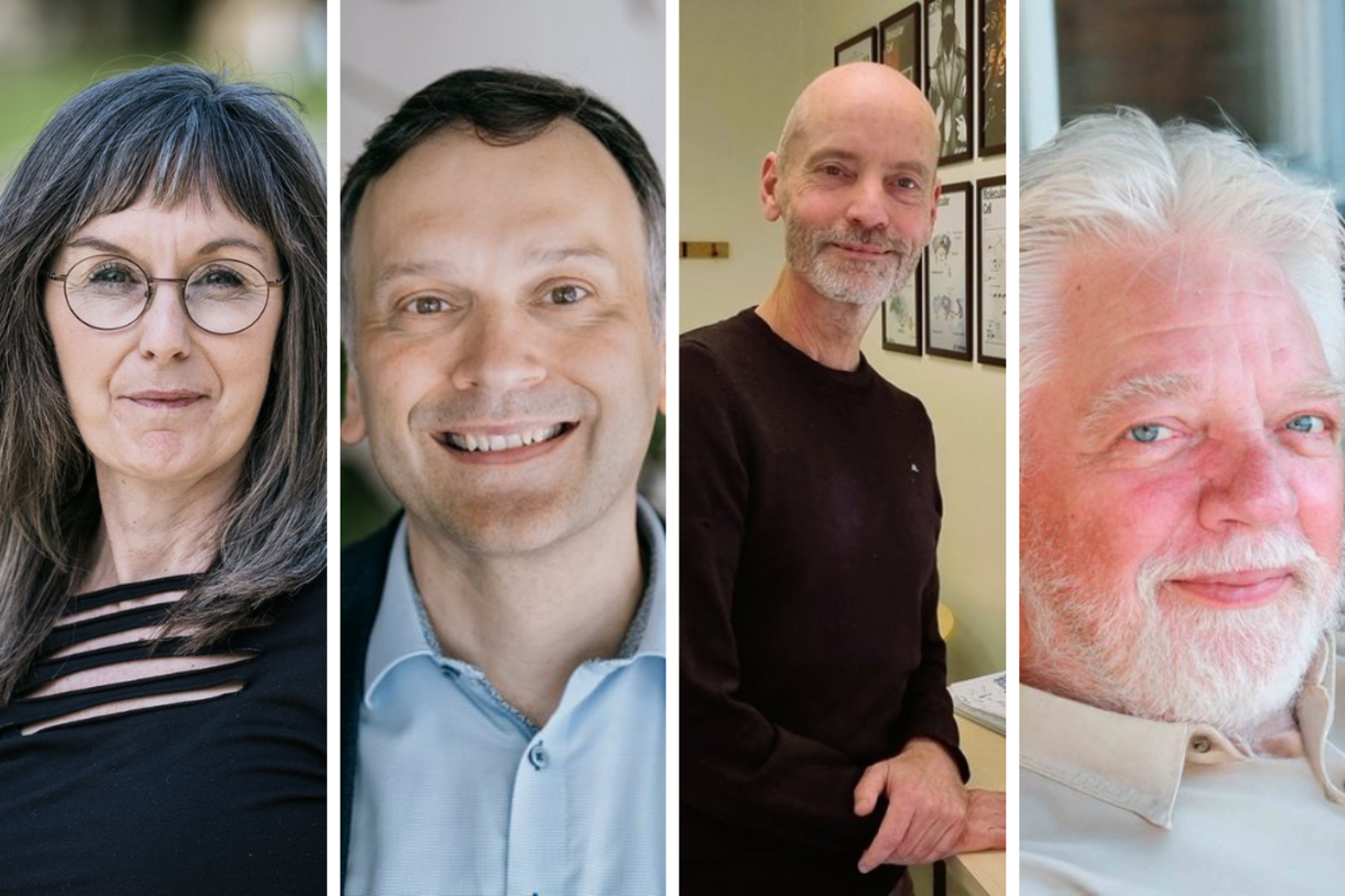Four AU researchers receive major grants from the European Research Council
Researchers from the faculties of Natural Sciences, Arts, and Aarhus BSS have each received grants of up to DKK 20 million for their research over the next five years. For one of them, it's not the first time.

Eight researchers in Denmark have just been awarded research grants from the European Research Council (ERC). Four of them are based at Aarhus University.
An ERC Advanced Grant amounts to approximately DKK 20 million and gives researchers the freedom to expand their research teams and pursue what are described as excellent ideas for up to five years.
AU’s recipients include Professor Torben Heick Jensen from the Department of Molecular Biology and Genetics, Associate Professor Ebbe Sloth Andersen from the Interdisciplinary Nanoscience Center, also affiliated with the Department of Molecular Biology and Genetics, Professor Ciara Kierans from the Department of Anthropology, and Professor Kees van Kersbergen from the Department of Political Science.
Both Torben Heick Jensen and Ebbe Sloth Andersen conduct research on RNA – the molecule that has gained widespread recognition in recent years due to mRNA vaccines. According to a news release from the Department of Molecular Biology and Genetics, it's rare for two researchers from the same institute to be awarded ERC Advanced Grants. Torben Heick Jensen previously received the grant in 2013, and Ebbe Sloth Andersen received a different ERC Grant in 2015.
Professor of social anthropology Ciara Kierans will explore how nature, technology, and organisms filter water in landscapes where rainwater and waste water meet. The project is based on fieldwork in both Mexico and Denmark, according to a news item from the School of Culture and Society.
Political science professor Kees van Kersbergen will use the grant to examine how democracies adapt to an increasingly fast-paced society, according to a release from Aarhus BSS. With his research team, the professor aims to uncover how different countries and their political systems navigate the trade-off between speed and democratic quality. The project focuses on Denmark, Estonia, Germany, India, the Netherlands, Switzerland, the United Kingdom, and the United States.
ERC Advanced Grants are awarded to researchers who, over the past ten years, have made significant contributions to their fields. In this round, the ERC evaluated nearly 2,534 applications and awarded grants to 281 researchers across Europe. The next deadline to apply for ERC Advanced Grants is 28 August this year.
The remaining Danish recipients of this round’s ERC Advanced Grants are all affiliated with the University of Copenhagen.
This text is machine translated and post-edited by Cecillia Jensen

